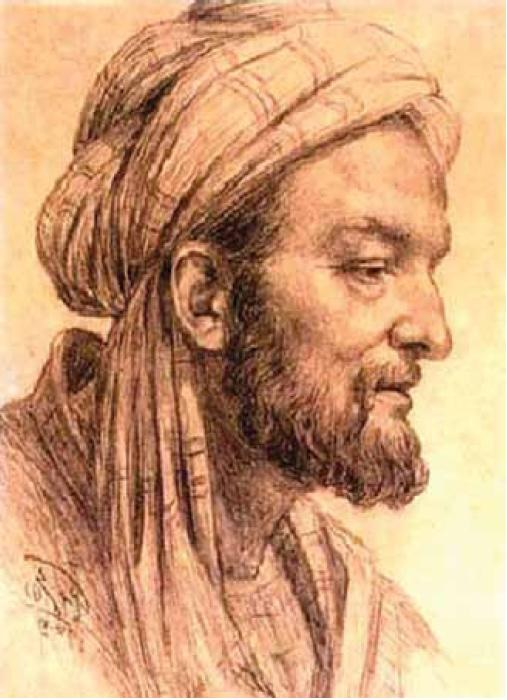"The Sage of Andalusia - Ibn Rushd (Averroes)
In the sun-drenched streets of Cordoba, where the echoes of Moorish architecture mingled with the scent of citrus blossoms, there lived a philosopher whose insights into the nature of reason and revelation would forever shape the course of Western thought. His name was Ibn Rushd, known in the West as Averroes, and his legacy would transcend the boundaries of time and space.
Born into a world where the splendor of Islamic civilization flourished amidst the olive groves and vineyards of Andalusia, Ibn Rushd's early years were marked by a thirst for knowledge that knew no bounds. Raised in the intellectual ferment of 12th-century Cordoba, he was exposed to a rich tapestry of ideas from a young age, drawn from the wisdom of ancient Greek philosophy, Islamic theology, and the scientific traditions of the ancient world.
From the opulent libraries of Cordoba's palaces to the bustling marketplaces of Seville and Granada, Ibn Rushd journeyed far and wide in search of intellectual enlightenment, guided by the belief that reason and revelation were complementary paths to truth. Along the way, he studied under some of the greatest scholars and philosophers of his time, immersing himself in the intricacies of metaphysics, ethics, and jurisprudence.
It was here, amidst the dazzling mosques and lush gardens of Andalusia, that Ibn Rushd's intellect blossomed like a desert flower, unfolding layer by layer to reveal the dazzling beauty of his philosophical insights. Drawing upon the wisdom of ancient Greek thinkers like Aristotle and Plato, he sought to synthesize the disparate strands of thought into a coherent and systematic framework.
Yet, Ibn Rushd's quest for intellectual enlightenment was not without its challenges. Living in a world where the boundaries between faith and reason were often blurred, he faced fierce opposition from conservative theologians who viewed his philosophical inquiries with suspicion and mistrust.
Undeterred by their condemnation, Ibn Rushd continued to pursue his studies, guided by the belief that reason was the noblest of faculties bestowed upon humanity. In his magnum opus, ""The Decisive Treatise,"" he sought to reconcile the teachings of Aristotle with the tenets of Islamic theology, offering insights into the relationship between reason and revelation in the quest for truth.
As the years went by, Ibn Rushd's fame spread far and wide, drawing scholars and students from all corners of the Islamic world to study under his tutelage. His works on philosophy, theology, and jurisprudence became indispensable tools for those who sought to unravel the mysteries of existence and the cosmos.
Yet, for all his brilliance, Ibn Rushd remained humble, ever mindful of the limits of human understanding. His legacy, however, would endure long after his passing, a beacon of light amidst the darkness of ignorance, a testament to the enduring power of reason and intellectual inquiry.
Influence and Legacy:
Ibn Rushd's works would go on to influence generations of philosophers and theologians, shaping the course of Western thought for centuries to come. His commentaries on Aristotle's works became foundational texts in the Latin West, sparking a revival of Aristotelian philosophy and paving the way for the Renaissance.
Yet, despite his monumental contributions, Ibn Rushd's name would often be overshadowed by those of later luminaries. It was not until the Enlightenment that Western scholars would come to recognize the debt owed to this sage of Andalusia, whose insights into reason and revelation had laid the groundwork for the modern world.
Today, as we ponder the mysteries of existence and the nature of truth, let us remember Ibn Rushd, whose legacy endures as a testament to the enduring power of reason and intellectual inquiry.
Notable Works:
1. ""The Decisive Treatise"" - A philosophical treatise reconciling the teachings of Aristotle with the principles of Islamic theology, offering insights into the relationship between reason and revelation in the quest for truth.
2. Commentaries on Aristotle - A series of commentaries on the works of Aristotle, offering insights into the principles of metaphysics, ethics, and natural philosophy.
3. ""The Incoherence of the Incoherence"" - A refutation of Al-Ghazali's ""The Incoherence of the Philosophers,"" defending the compatibility of philosophy and theology in the quest for truth.
Related Scholars:
Ibn Rushd's legacy resonated with later philosophers and theologians, including Thomas Aquinas, Maimonides, and Giordano Bruno, who built upon his ideas and expanded the horizons of Western thought.
"






Ali Karim
Delete Comment
Are you sure that you want to delete this comment ?
TheIslamicExperience
Delete Comment
Are you sure that you want to delete this comment ?
Omar Suleiman
Delete Comment
Are you sure that you want to delete this comment ?
Layla Kone
Delete Comment
Are you sure that you want to delete this comment ?
Delete Comment
Are you sure that you want to delete this comment ?
Delete Comment
Are you sure that you want to delete this comment ?
VirtueVistaX
Delete Comment
Are you sure that you want to delete this comment ?
Adam Khan
Delete Comment
Are you sure that you want to delete this comment ?
Emeka Nwachukwu
Delete Comment
Are you sure that you want to delete this comment ?
LuminaryIslam
Delete Comment
Are you sure that you want to delete this comment ?
Hasan Al-Masri
Delete Comment
Are you sure that you want to delete this comment ?
Hassan El-Masri
Delete Comment
Are you sure that you want to delete this comment ?
Delete Comment
Are you sure that you want to delete this comment ?
Nadim Suleiman
Delete Comment
Are you sure that you want to delete this comment ?
Delete Comment
Are you sure that you want to delete this comment ?
Khadija Ali
Delete Comment
Are you sure that you want to delete this comment ?
Yusuf Sow
Delete Comment
Are you sure that you want to delete this comment ?
Delete Comment
Are you sure that you want to delete this comment ?
Zara Coulibaly
Delete Comment
Are you sure that you want to delete this comment ?
UmmahUnity
Delete Comment
Are you sure that you want to delete this comment ?